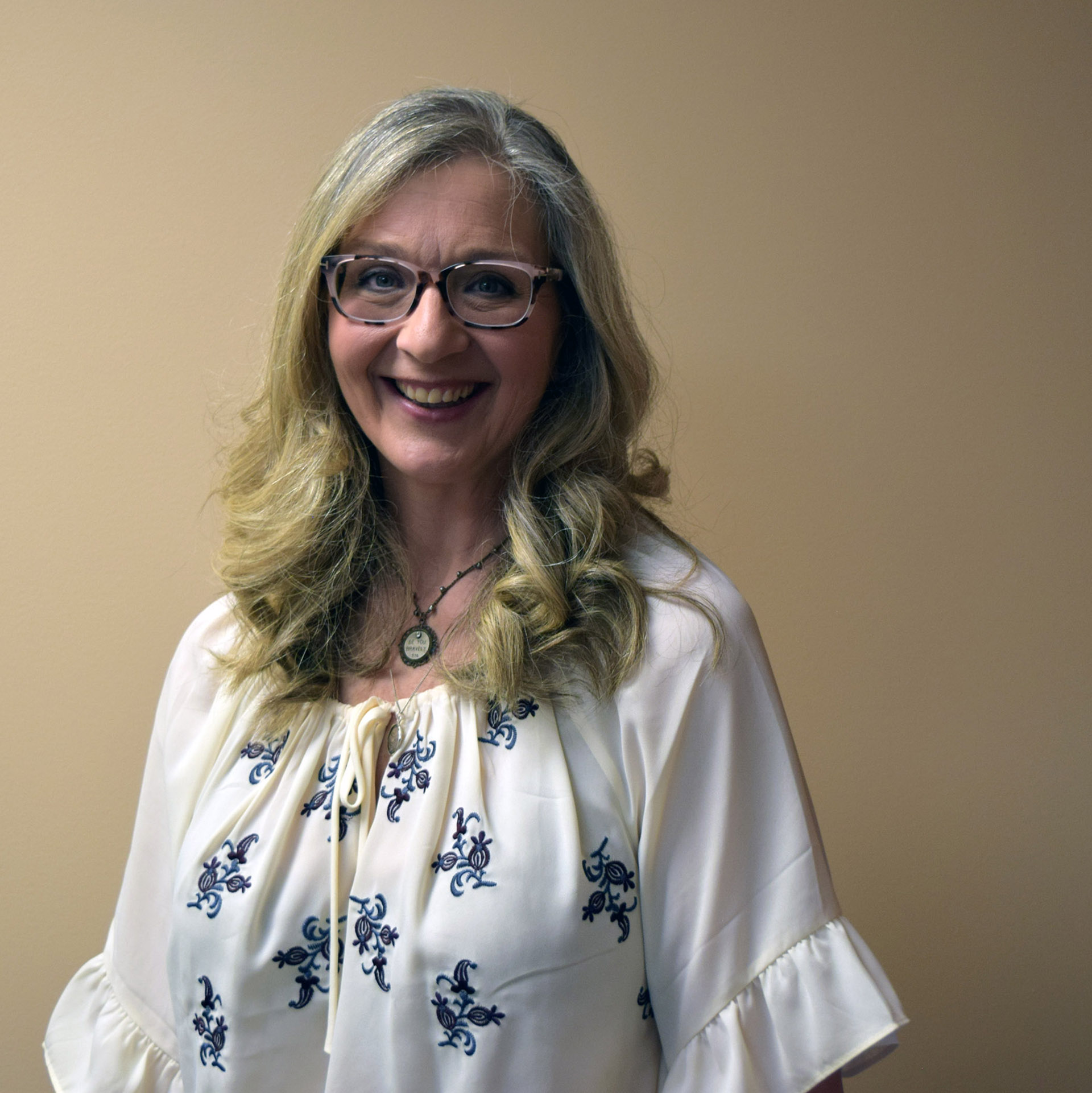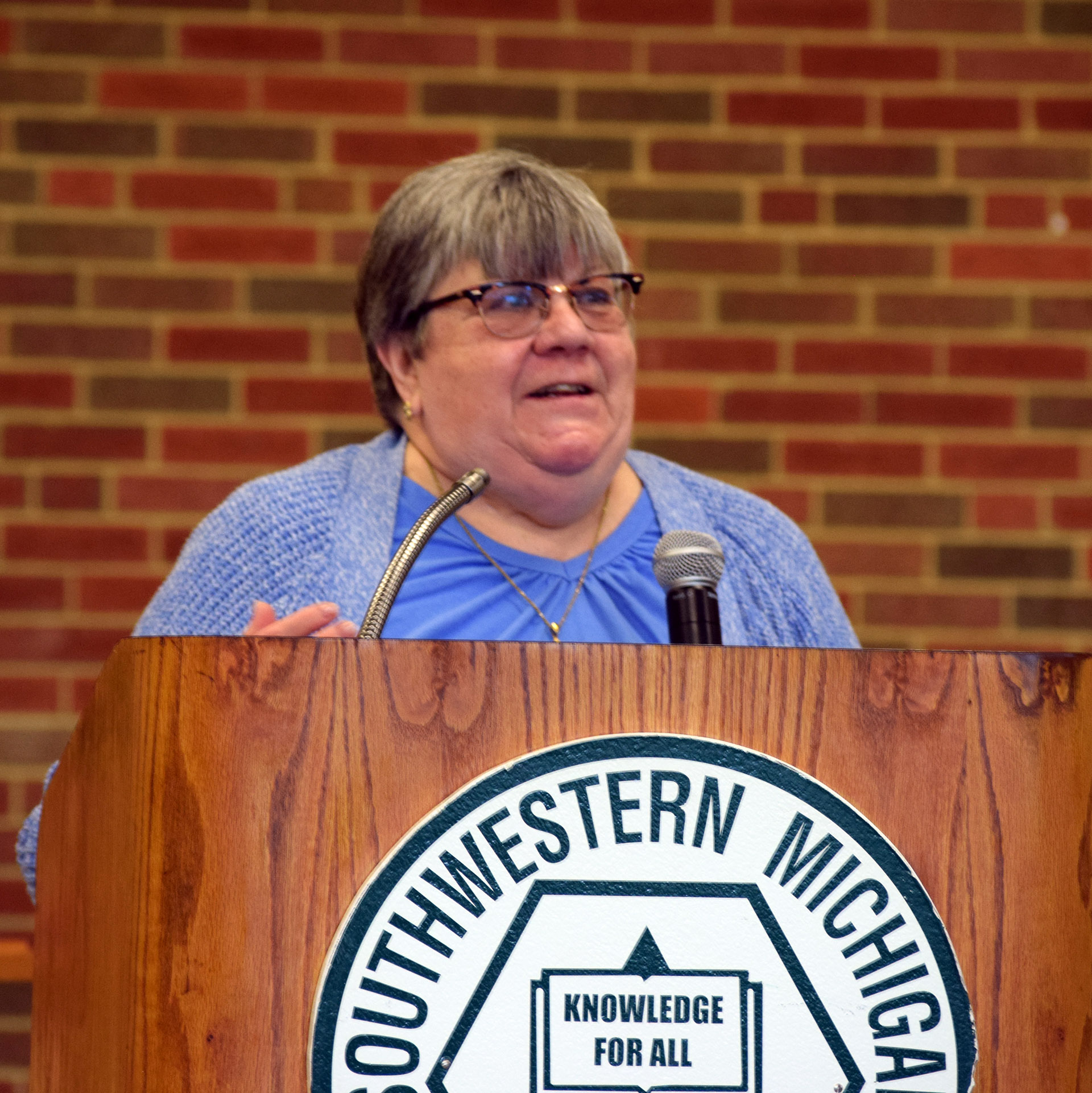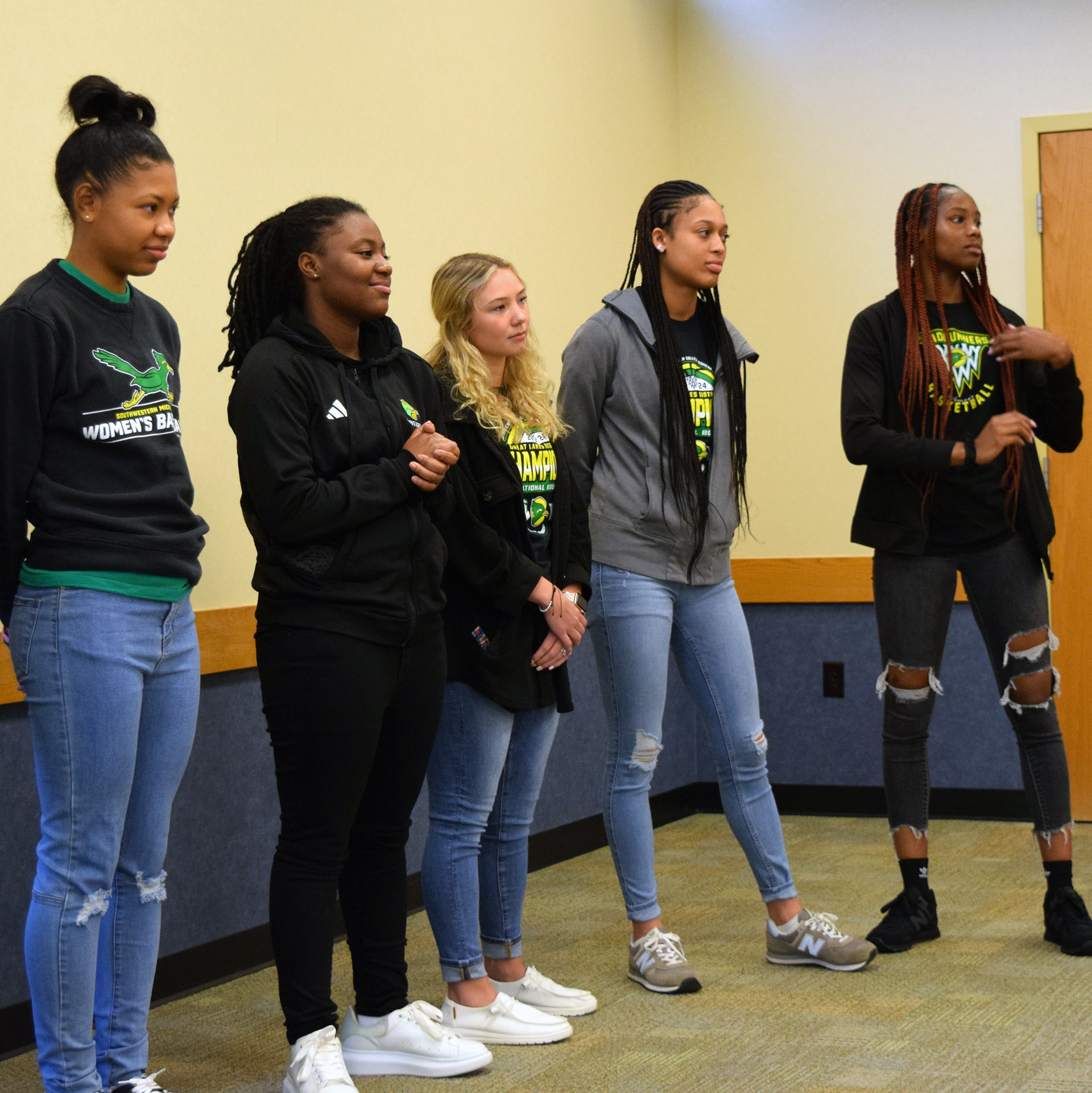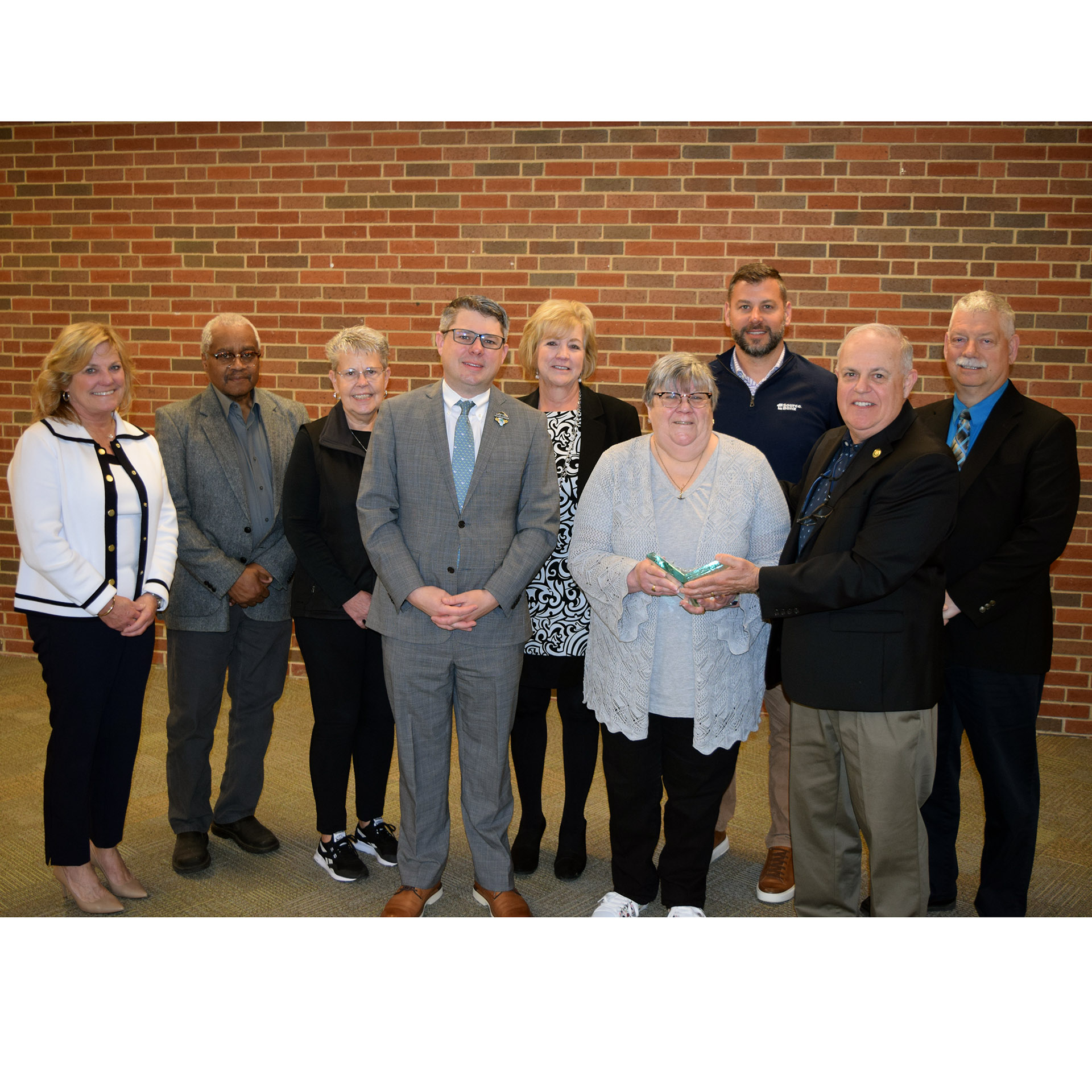
News
-
RECENT NEWS
Pandemic Redirects Preston into Medical Assisting
SMC Student Art Show Opens
SMC Students Explore Ohio, Tennessee, West Virginia and South Carolina
SMC’s Phi Theta Kappa Chapter Inducts 14 Honor Students
SMC Board Celebrates Athletics Success, Adds Three More Teams
SMC Board Salutes Dr. Young-Marcks' Record 40 1/2 Years
Midwives Do More Than ‘Catch’ Babies
Published on January 26, 2023 - 10 a.m.
Midwives do more than “catch” babies.
“I don’t deliver babies, I’m not the stork,” clarified Betsy Saylor-Fuzi, MSN, APRN, CNM, who had to catch 40 during her training.
She visited Southwestern Michigan College’s Student Activity Center theatre in the Charles O. Zollar Building Jan. 24 to testify to the “vastness” of opportunities in nursing and health-care fields. “Every player in the health-care system has a part,” she said.
“Getting into an OB unit was very competitive when I started nursing,” Saylor-Fuzi said. “Nurses stayed a long time. They wanted two years of med/surg experience before you could specialize. It’s not like that anymore because we’re in a massive nursing crisis.”
“I thoroughly enjoy taking care of people,” she said. “Are there good times? Absolutely! Are there bad times? Absolutely! But when it all comes together, it’s glorious! The good times outweigh the bad. If I make a difference in one person’s life, it’s worth it to me.”
Saylor-Fuzi is no stranger to Dowagiac. She attended Union High School until 10th grade. Saylor’s Front Street Pizzeria is her cousin, Jamie. Like his sons, Ethan and Alec, who helped resurrect SMC cross country in 2021 after 25 years, she used to run.
Today, she has five children, ages 17, 23, 26, 28 and 31, and eight grandchildren.
She divides her time between Kaleva, where she lives with her husband, Ryan, and southwest Michigan, catching babies for Corewell Health South, formerly Spectrum Health Lakeland, in St. Joseph since June 2021. Kaleva is a village in Manistee County, between Traverse City and Manistee.
Saylor-Fuzi attended West Shore Community College in Scottville to become a registered nurse in 1998.
She earned her bachelor’s degree in nursing in 2017 from Ferris State University with a 4.0 grade-point average.
She completed her master’s degree for nursing/midwifery in 2020 from Frontier Nursing University in Versailles, Ky., “ the birthplace of nurse-midwifery.”
There are multiple pathways for midwifery, although not all are recognized by Michigan.
CNMs are nurses who have completed a graduate-level nurse-midwife program and passed a certification exam from the American Midwifery Certification Board.
The American College of Nurse Midwives reports that midwives attended 312,129 U.S. births in 2010, representing 11.6 percent of all vaginal births and 7.8 percent of total births.
Saylor-Fuzi was an internationally board-certified lactation consultant from October 2011-September 2021.
She previously worked at Munson Healthcare Manistee Hospital for almost 18 years as an obstetrical RN, a critical care RN and a medical surgical RN. She was house supervisor for Munson Medical Center in Cadillac from March 2018-June 2019. Through Corewell, she is also affiliated with InterCare Community Health Network of Benton Harbor and BellaNova Women’s Health of St. Joseph.
Michigan midwives are either direct-entry (DEM) or certified nurse-midwives (CNM) such as herself. CNMs are controlled by the state Board of Nursing as they must first attend nursing school. As of Aug. 1, 2019, a license is needed to work as a midwife throughout Michigan.
DEMs may gain experience working with another midwife, attend midwifery courses or a combination. DEMs may pursue national certification with the North American Registry of Midwives (NARM) and become a Certified Professional Midwife (CPM). CPMs do not catch babies in hospitals.
“We can practice in the hospital, office, birth center or home setting,” Saylor-Fuzi said. “We can be a woman’s primary care provider from the start of adolescence through menopause. You can see me for a sore throat. We can provide care to newborns up to 28 days. We have prescription authority under a physician. We can provide gynecological and family planning services and treat male partners for sexually transmitted infections. Most CNMs practice in a hospital, not a home setting. The only difference between me and OB doctors is they can do surgery,” such as C-sections.
Job growth projected for CNMs is strong — 7 percent through 2031, according to the Bureau of Labor Statistics.






